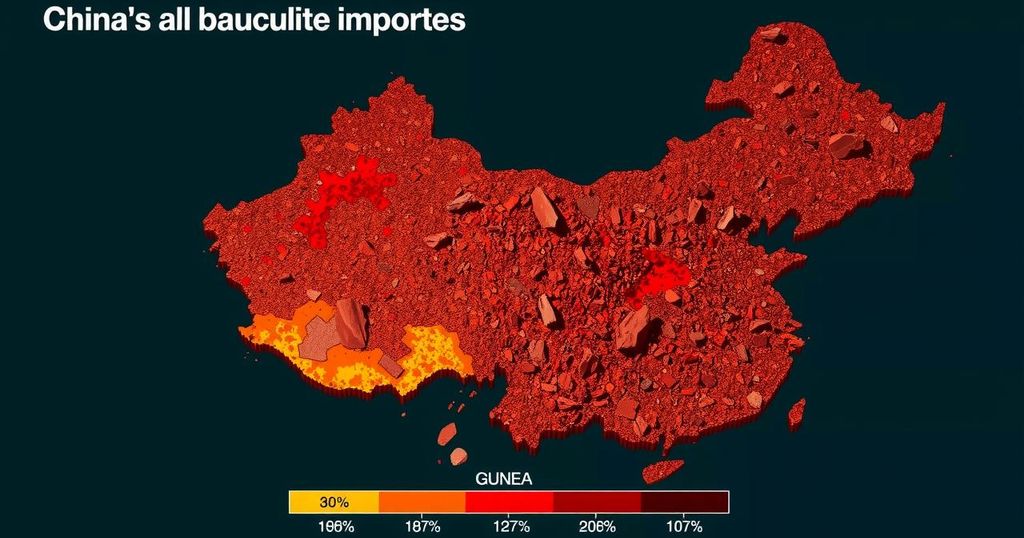China’s bauxite imports fell 25.68% in September 2024, totaling 11.5536 million tonnes due to supply disruptions from Guinea, worsened by customs issues. While imports from other nations increased, they were insufficient to compensate for the decline.
In September 2024, China’s imports of bauxite experienced a notable decline, decreasing by 25.68% month-on-month. This reduction can be attributed primarily to supply disruptions originating from Guinea, initially caused by unfavorable weather conditions, and subsequently due to the blockage of exports by Guinea’s customs authorities. According to the General Administration of Customs of China, the bauxite import volume reached 11.5536 million tonnes in September, a significant drop from the 15.546 million tonnes recorded in the preceding month. However, this figure represents an increase of 15.82% when compared to the same month last year. This decline in imports is not limited to Guinea alone; similar reductions were noted in imports from Malaysia and Brazil. Although there was an increase in imports from Australia, Turkey, Laos, and the Ivory Coast, these gains were insufficient to counterbalance the overall month-on-month decrease.
Bauxite is a critical raw material for aluminum production, and its availability is essential for China, the world’s largest aluminum producer. The recent disruptions in supply from Guinea, a key supplier of bauxite to China, are due to external factors such as weather and customs delays. This situation has implications not only for import volumes but also for the broader aluminum production industry, which could face challenges due to fluctuating raw material supplies. Understanding these dynamics is crucial for stakeholders in the industry, particularly those involved in procurement and supply chain management in aluminum manufacturing.
In summary, China’s bauxite imports in September 2024 were significantly impacted by supply disruptions from Guinea, resulting in a 25.68% decline compared to the previous month. While there was an increase in imports from alternative countries, it was not adequate to fully offset the losses. This situation highlights the vulnerabilities within the supply chain for crucial industrial materials like bauxite, underscoring the need for diversification in sourcing strategies.
Original Source: www.alcircle.com







